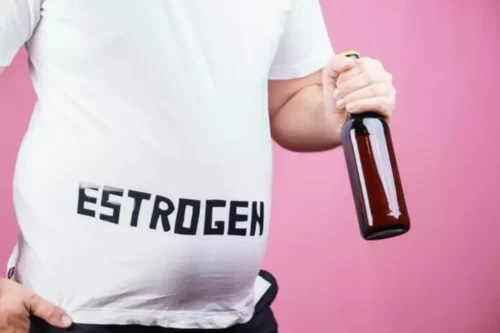
We uphold superior benchmarks for educational medical resources, validating that each publication delivers precise and reliable healthcare information you can rely on. NIDA finds that 37.9% of adults with SUDs also have mental illnesses, and that 18.2% of adults with a mental illness also have an SUD. The latter factor explains, in part, why heavy drinkers are much more susceptible to hypoglycemia.
Top Recovery Gifts That Support Sobriety
Recovering alcoholics often grapple with fluctuating blood sugar levels, particularly hypoglycemia, which is common after halting alcohol intake. Alcohol consumption typically causes an initial spike in blood sugar followed by a significant crash. This drop leads to cravings for sugar as individuals attempt to stabilize their energy levels. It’s important for recovering alcoholics to be aware of these links between their addiction and sugar cravings as they work towards sobriety. By managing their diet carefully they might reduce sugar binges during abstinence from drinking thus decreasing chances of relapse due to unhealthy eating habits.

Coping Mechanisms and Stress
Drug rehab programs provide a structured environment and various therapies to help individuals overcome substance abuse and achieve long-term recovery. Choosing the right rehab center, with personalized care and qualified staff, is crucial for a successful treatment journey. Drug rehab is highly effective in aiding long-term sobriety through personalized care, strong support systems, and therapeutic interventions.
- Alcohol consumption typically boosts dopamine levels, providing a euphoric feeling that many recovering individuals may seek to replicate through sugary foods.
- Explore how life is boring without drugs and discover strategies to create joy and fulfillment post-addiction.
- As individuals navigate their recovery journey, it’s important to remember that nutrition plays a key role in supporting both physical and mental health.
- Too much sugar negatively impacts your overall health and prevents your body from recovering.
- Participating in hobbies and community activities also serves to fill time meaningfully, reducing feelings of loneliness or boredom that may otherwise lead to relapses.
Sugar and The Brain’s Reward System
Nutrition counseling can play a vital role in guiding individuals toward a healthy and balanced diet, ensuring they receive the necessary nutrients to support their overall well-being. Another psychological factor contributing to sugar cravings in recovering alcoholics is the use of sugar as a coping mechanism and substitution. Alcoholics often use alcohol to manage stress, escape negative emotions, or self-medicate underlying psychological issues. Recovering alcoholics often crave sugar due to the neurological changes that occur during long-term abuse of alcohol. While it can be challenging to break this craving, there are various strategies and lifestyle modifications that can help recovering do recovering alcoholics crave sugar alcoholics curb their cravings for sugar.
Hypoglycemia Risks
- However, the same was found to be true with non-carbohydrate substitutes, which have also been shown to suppress voluntary alcohol intake.
- Discover the role of acceptance in mental health recovery and how it fosters resilience and reduces anxiety.
- Understanding the triggers and patterns behind sugar cravings in recovering alcoholics is essential for managing these cravings effectively.
- This deficiency can result in the body signaling increased sugar intake as a way to obtain quick energy, perpetuating the cycle of craving and consuming sugary foods or beverages.
- In this specific exploration’s context, an eating disorder can exacerbate sugar cravings beyond alcohol abstinence itself, discomforting the individual immensely.
- These routines may include specific times of the day or situations where they used to consume alcohol.
These cravings can be both psychological and physiological in nature, and understanding their underlying causes is essential for effective management. While psychological factors play a significant role in the sugar cravings drug addiction experienced by recovering alcoholics, there are also important biological factors at play. Understanding these biological factors can shed light on why sugar cravings are common among individuals in recovery.
As they navigate their recovery journey, recovering alcoholics may turn to sugary foods and beverages to seek comfort or a quick source of pleasure. In addition to this, nutrient deficiencies and blood sugar issues resulting from severe alcohol use disorders can trigger cravings for high-sugar foods like chocolate, candy, or other sweet treats. Consequently, it’s not uncommon for individuals in recovery to have a heightened craving for sugary foods. By finding a balance between addressing sugar cravings and maintaining overall health, individuals in recovery can manage their sugar intake effectively. It’s important to remember that everyone’s journey is unique, and what works for one person may not work for another.


Explore understanding the effects of peer pressure on mental health and learn empowering coping strategies. As the body seeks to compensate for the loss of alcohol-induced dopamine, sweet foods become a desirable alternative. This craving is further complicated by the imbalances of neurotransmitters like serotonin, GABA, and glutamate, often resulting from alcohol’s disruptive effects on brain chemistry. These imbalances can enhance the attraction to sugary treats, as the brain searches for a quick fix to restore pleasure and mood stability.

For more insights, readers can explore how to stop drinking naturally or investigate substance use counselor job descriptions. Implementing these changes not only helps individuals manage sugar cravings but also fosters resilience against potential relapse triggers. Another contributing factor to sugar cravings in recovering alcoholics is blood https://ecosoberhouse.com/ sugar levels. Alcohol can negatively impact blood sugar control, leading to excessive or dangerously low blood sugar levels.
- Discover how to overcome burnout after you’ve burnt out, from recognizing symptoms to strategies for recovery.
- The reason why sugar may play a role in alcoholism is because it can help to replenish the body’s store of glycogen.
- Behavioral responses to sugar can vary significantly, especially in individuals with a history of alcohol dependence.
- Understanding the role of dopamine in cravings can provide insight into the dynamic between alcohol addiction and sugar cravings.
- The consumption of sugar can trigger cravings for alcohol and vice versa, posing challenges for individuals in recovery.
- It’s important to remember that everyone’s journey is unique, and finding the right support and resources that resonate with them is key to long-term success.
Acupuncture and Recovery
When alcohol is removed from their lives, individuals may seek alternative ways to soothe their emotions. Sugar, with its pleasurable taste and ability to release dopamine in the brain, can temporarily mimic the comforting effects that alcohol once provided. If an alcoholic gives in to their sugar cravings, it can lead to a relapse. The sugar high from eating sweets can be similar to the feeling that alcohol gives, and this can be dangerous for someone in recovery. In summary, the interplay of metabolic changes, brain function, and hormonal effects all contribute to why alcoholics crave sugar. Recognizing these influences can provide a clearer path toward managing cravings and fostering recovery.
